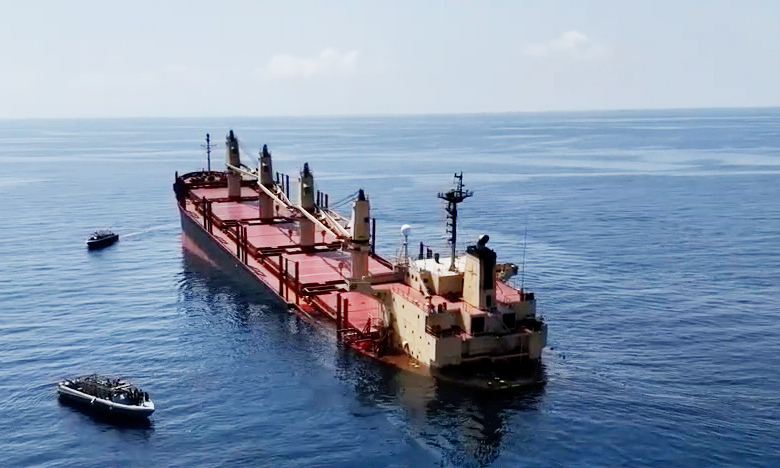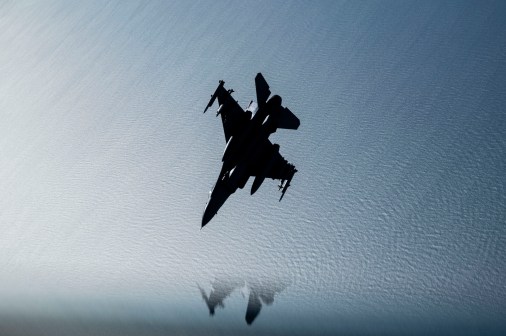DOD warns Houthi-sunk ship could ‘create an environmental disaster’ in Red Sea

The U.S. military did not attempt to intervene or offload any of the fertilizer on the Rubymar cargo ship between the time it was hit by a Houthi-launched missile on Feb. 18 and completely sank on March 2 in the Red Sea, where its wreckage is now presenting serious environmental risks, according to an official.
During a media briefing Monday at the Defense Department, Deputy Pentagon Press Secretary Sabrina Singh responded to questions regarding this incident — and possible responses the U.S. is weighing in the aftermath, particularly as it continues to lead Operation Prosperity Guardian.
“[The Rubymar] was carrying thousands of pounds of fertilizer, which is going to create an environmental disaster right in the Houthis’ backyard. So, again, how successful do they think they’re being? I mean, now they have an environmental problem on their hands, and on top of that, have created more issues for commercial ships transiting that region,” Singh told DefenseScoop.
Defense Secretary Lloyd Austin announced Prosperity Guardian in mid-December, which he then billed as a multinational coalition to protect commercial and other vessels in and around the Red Sea.
This initiative came in response to an escalating series of drone and missile assaults launched from Yemen by the Iranian-backed Houthi militia group, who say they’re protesting Israel’s military campaign in Gaza by disrupting shipping in those vital trade routes.
On Feb. 18, U.S. Central Command, which oversees American military operations in the Middle East, confirmed on social media that an anti-ship ballistic missile launched by the Houthis struck the “MV Rubymar, a Belize-flagged, U.K.-owned bulk carrier.” Its crew issued a distress call and a “coalition warship” and another merchant vessel responded. The other merchant vessel transported the crew “to a nearby port,” according to Centcom.
Subsequently, the command shared a post on March 2, announcing that Rubymar had fully submerged and “sank in the Red Sea.”
“The ship had been slowly taking on water since the unprovoked attack. The approximately 21,000 metric tons of ammonium phosphate sulfate fertilizer that the vessel was carrying presents an environmental risk in the Red Sea. As the ship sinks it also presents a subsurface impact risk to other ships transiting the busy shipping lanes of the waterway,” officials wrote.
During the briefing on Monday, Singh noted that the U.S. did not participate in any activities to proactively offload potentially harmful substances from the ship as it was sinking.
“We, as a department, didn’t have that type of capacity. That’d be something that the commercial shipping company would have [to address],” she said.
In response to questions from DefenseScoop, Singh also would not say whether the Pentagon is planning to send more counter-drone or air defense capabilities to the Red Sea or surrounding areas in the near term.
“I wouldn’t get ahead of any changes in our posture there — not that I’m tracking. But again, you have the [Eisenhower] Carrier Strike Group in the region with destroyers. They’re helping protect and ensure freedom of navigation, but I don’t have anything to announce on that. I don’t think that’s something that we would announce,” she said.
Rubymar marks the first vessel to be completely sunk, since the Houthis started targeting commercial ships in November.
U.S. Central Command did not immediately respond to a request for comment.






